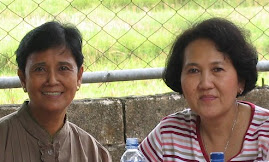MANILA, Philippines—Commission on Higher Education (CHEd) Chair Emmanuel Angeles on Thursday congratulated the four Philippine universities who made it to the The Times Higher Education-Quacquarelli Symonds (THE-QS) World University Rankings 2008, saying the institutions should do better next year.
Angeles said he was happy that the Ateneo de Manila University (ADMU), University of the Philippines (UP), De La Salle University (DLSU) and the University of Sto. Tomas (UST) made it to the world’s top 500 universities in the survey conducted by The Times Higher Education-Quacquarelli Symonds.
“I commend them for their achievement,” he said.
According to the survey released this week, Ateneo ranked 254th, leaping from its 400th and 500th position in the previous two years. Ateneo was sandwiched between London’s School of Oriental and African Studies and the Universidad Autonoma de Madrid, Spain.
UP, the country’s premier state university, was ranked 274th, up from its 398th place last year, getting a slot between two German universities, the University of Hamburg and Ülm University.
DLSU and UST, both Catholic and private universities along with Ateneo, were ranked 415th and 470th, respectively. In the past year, the two schools were out of the Top 500.
Angeles said that Philippine schools would get better rankings if they chose to advertise in the THE-QS’ publications. “I think if we can participate, the ranking would move forward,” he said.
Angeles, who also chairs the UP Board of Regents, rued UP’s second-place position behind the Jesuit-run Ateneo. This year was the first time that Ateneo overtook UP in the rankings.
UP did not join the THE-QS 2008 survey nor did it respond to the 2007 survey, contrary to an earlier report.
UP has questioned the validity of the 2008 rankings, saying the methodology was “problematic.” The university said the THE-QS refused to divulged where and how it got its data.
Angeles said UP could have ranked higher, had it not been for its budget problems. He said the survey took note of the institution’s budget, tuition, and the salaries it gave to its faculty and researchers.
“UP charges a small tuition, it has a smaller budget, and the salary scale of teachers is low,” Angeles said.
“Now that UP has a charter, the teachers will not be included in the Salary Standardization Law. They can have better salaries and possibly in the next year, we will be doing better,” he added.
“We are going to appeal to Congress to give UP a higher budget. We will work on it,” he said.
The UP system, which has its flagship campus in Diliman, Quezon City, is composed of seven constituent universities, with 12 campuses nationwide.



















No comments:
Post a Comment